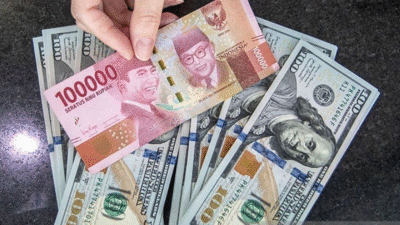While global markets are rallying and the US-China trade war appears to be cooling off, Bank Negara Indonesia (BNI) has chosen a more measured path. Rather than jumping into aggressive expansion, the Indonesian banking giant is maintaining a conservative financial stance. This decision may appear counterintuitive at first glance, but it reflects BNI’s long-term strategy to prioritize stability over short-term gains.
Why BNI Remains Cautious
Despite the current market optimism, BNI executives believe that global economic uncertainty is far from over. Although trade tensions have eased, underlying issues such as inflationary pressure, fluctuating commodity prices, and geopolitical risks still linger.
According to BNI’s Chief Financial Officer, the bank prefers to strengthen its fundamentals first, ensuring it remains resilient should another wave of volatility hit global markets. This includes focusing on risk management, improving asset quality, and maintaining high liquidity levels.
Positioning for Long-Term Growth
BNI’s conservative stance does not mean the bank is passive. On the contrary, the bank continues to make strategic moves behind the scenes. For instance, BNI is enhancing its digital banking infrastructure and exploring new partnership opportunities in the fintech space. These efforts are aimed at building sustainable revenue streams without exposing the institution to unnecessary risks.
Moreover, BNI is actively optimizing its loan portfolio, targeting low-risk sectors such as renewable energy, agriculture, and government-backed infrastructure projects. These sectors offer stable returns and align with the Indonesian government’s long-term economic vision.
A Contrarian but Thoughtful Strategy
While many financial institutions are increasing lending aggressively to ride the market rally, BNI is choosing a contrarian yet thoughtful strategy. This approach may seem overly cautious, but history has shown that banks with stronger risk controls tend to outperform in the long run, especially during periods of uncertainty.
In addition, BNI’s strategy reflects its commitment to protecting shareholder value. By avoiding exposure to overly volatile markets or speculative investments, BNI is reinforcing its position as a reliable and prudent financial institution.
Investor Reactions and Market Outlook
So far, investors have responded positively to BNI’s cautious stance. Many appreciate the bank’s focus on risk-adjusted returns and capital efficiency. As trade tensions ease and regional growth stabilizes, BNI is expected to gradually increase its exposure to more aggressive lending—but only when internal risk indicators allow it.
Meanwhile, analysts are keeping a close eye on the bank’s upcoming quarterly performance. Should BNI manage to maintain profitability while staying conservative, its model may set an example for other banks navigating post-pandemic recovery.
Conclusion: In Uncertain Times, Stability Wins
BNI’s conservative approach in the midst of a market rally and easing trade war may seem like playing it safe—but it’s actually a calculated move. In an unpredictable global economy, stability and resilience are often more valuable than rapid growth.













